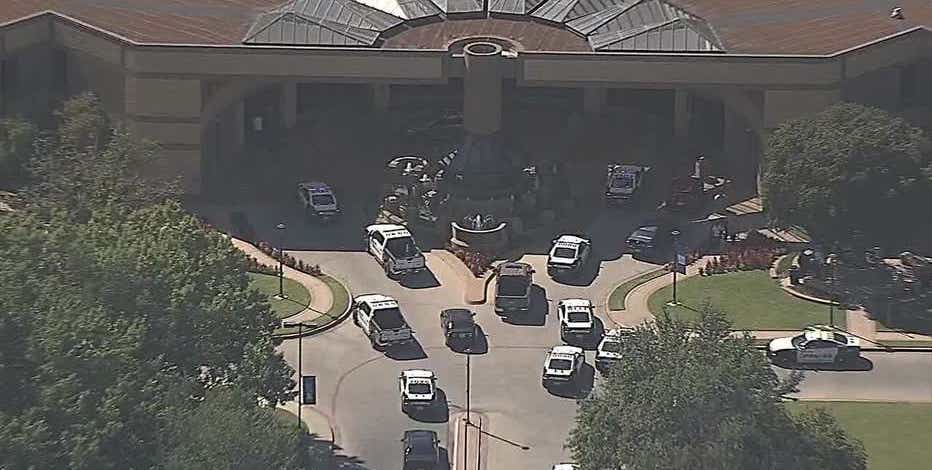Texas: The Issue Is - Work underway to make penalty tougher for criminals who cut off ankle monitors

Texas: The Issue Is - Work underway to make penalty tougher for criminals who cut off ankle monitors
There is a bipartisan effort to make the penalty tougher for criminals who cut off their ankle monitors.
DALLAS - There is a bipartisan effort in Texas to make the penalty tougher for criminals who cut off their ankle monitors.
In Dallas, two hospital workers were killed after a suspect was allowed to be at the hospital for the birth of his child. Months earlier, he was arrested for cutting his ankle monitor.
Bills filed by State Rep. Rafael Anchia (D-Dallas), create a felony offense to remove an electronic ankle monitor, would require hospitals to be notified if a violent criminal is being allowed on campus and would make the assault of a hospital worker a 3rd-degree felony.
Rep. Rafael Anchia: It's tragic that we had to learn about the fact that if you cut off your ankle monitor your parole is not revoked because two health care workers at a Methodist Hospital were murdered in the heart of the community that I represent.
[Steven: Did it shock you to find out that this wasn't just an isolated incident about an offender who had an ankle monitor and cutting it off and then committing a crime?]
Rep. Rafael Anchia: The Board of Pardons and Paroles had failed to revoke the parole for a violent criminal who had been arrested on a number of different occasions, who had violated his parole, who had tested positive for drugs while on parole. When all of that came out, I just thought to myself, you know, what were the last, best chances that we would have had to stop this violent murderer from killing these health care workers?…What do you mean, if you cut off your ankle monitor, you don't immediately go back to jail. Right. Like that. That one doesn't even pass the basic test of common sense.
[Steven: There are some divisive issues this legislative session. Do you think this is one your series of bills could be one of those times where we see bipartisanship? What have you heard from your colleagues on the other side of the aisle in reference to this?]
Rep. Rafael Anchia: On the ankle monitor bill, we already have a Senate sponsor, Senator Huffman from Houston, who's a Republican. She's working on that bill in the Senate. And so we anticipate we're going to have some broad, bipartisan, bicameral support. I have Republican joint authors that are ready to go on the ankle monitor bill. The other bills are also common sense. Other members are coming up to me on the House floor saying, hey, I want to get on that on those bills. I can't believe those things are not already law and let's work together. So I'm hopeful in an environment that that sometimes can be divisive, that we can have broad bipartisan support for these commonsense reforms.

Texas: The Issue Is - Work underway to make penalty tougher for criminals who cut off ankle monitors pt. 2
The Texas Trio discusses the bipartisan effort to make the penalty tougher for criminals who cut off their ankle monitors.
[Steven: Why now do you think that? Unfortunately, you know, the Methodist issue happened, but that you can use this tragedy and turn to something positive?]
Rep. Rafael Anchia: People have been fired from the Board of Pardons and Paroles. There's been an internal investigation by that organization, the state auditor, looking at. It's entirely possible that after all these investigations take place, we need a major overhaul of the Board of Pardons and Paroles, because in at least these two cases, the ankle monitor violations did not cause them to revoke parole, which is really what should have happened.
[Steven: Who is at fault? What levels of failure was this on? Was it just on pardon parole or lawmakers at fault as well?]
Rep. Rafael Anchia: So we think a top to bottom of pardons and paroles and sort of holding the executive branch to account. That's our job as a co-equal branch of government. At the same time, we're going to look at TDCJ, you know, have the moneys that have been diverted from TDC by the governor cause there re not enough supervision there, not enough guards in an environment where it's hard enough to hire guards in the first place so that they're having to let people out, violent criminals out on these ankle monitors when instead they should be in jail. So there's a top to bottom on this as well. You know, the fact that none of my colleagues nor I knew that this was not the law already is also a problem where we're going to try to remedy that this session.


